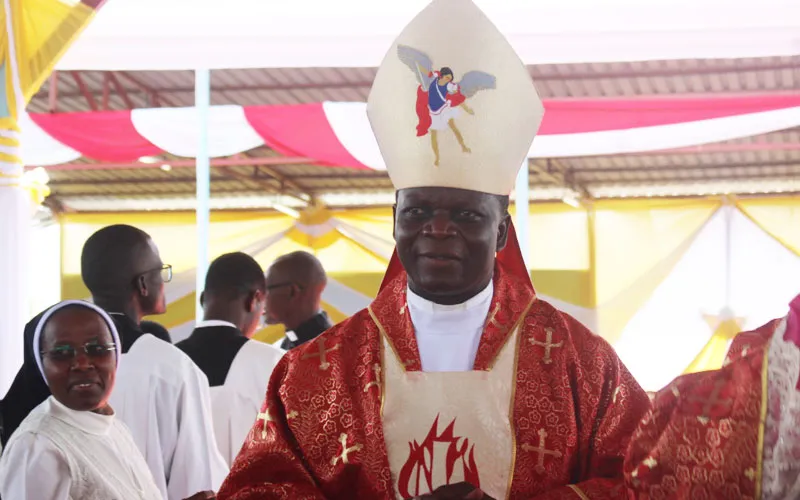The National Cohesion and Integration Commission identified at least 23 Kenyan Counties as potential zones for election-related violence, including Kisumu, Siaya, Nairobi, Uasin Gishu, Garissa, Kericho, Homa Bay, and Kakamega, among others.
In the interview with ACI Africa, Archbishop Muhatia said the mapping out of hotspots in Kenya “was to draw attention that we will get what we want.”
“Garbage in, garbage out. If you are going to incite people and speak aimlessly in public, they will be incited,” he said, adding that identifying hotspots does not aim at portraying towns negatively, but seeks to emphasize the need for caution against indecent, inciteful, and hateful speech.
The Catholic Archbishop who has been at the helm of Kisumu Archdiocese since March 19 said the Counties covered by his Metropolitan See (Kisumu and Siaya) have been identified among the hotspot zones because one of the presidential candidates is a native of the region and enjoys a strong support.
“We would like our candidate to win. If our candidate does not win, we will be sad. It is what we do with the sadness that is the problem; that is why politicians and everybody else has to be careful what they say,” he explained.
Archbishop Muhatia added in reference to politicians, “If they say good things, encouraging things, people will deal with the sadness positively. If you say bad (and) negative things, people will deal with the sadness also negatively and in inflammatory ways.”
To avoid violence before, during, and after the general elections, there is need “to exercise a lot of caution in what we say and how we say it,” he reiterated, and added, “Politicians, church leaders, news men and women, everybody needs to pull together the spirit of Harambee as patriots, for the love of our country ahead of everything else.”
Kenyans need to embrace whoever will be declared as the country’s President after the general elections, Archbishop Muhatia said, adding, “We should say let whoever wins, win. If he is from Turkana, if he is from Kisumu, Uasin Gishu, Mombasa, or anywhere else, he is a Kenyan, so be it.”
He went on to urge institutions that are involved in managing the elections to be transparent and accountable to the public. He said that the institutions such as the Independent Electoral and Boundaries Commission (IEBC) and security agencies need to be fair to all political candidates and parties and exercise prudence in their activities.
“These agencies need to pull together for the good of our country, for a peaceful election,” the Kenyan Archbishop who started his Episcopal Ministry in Nakuru Diocese in February 2010 said during the June 3 interview.








